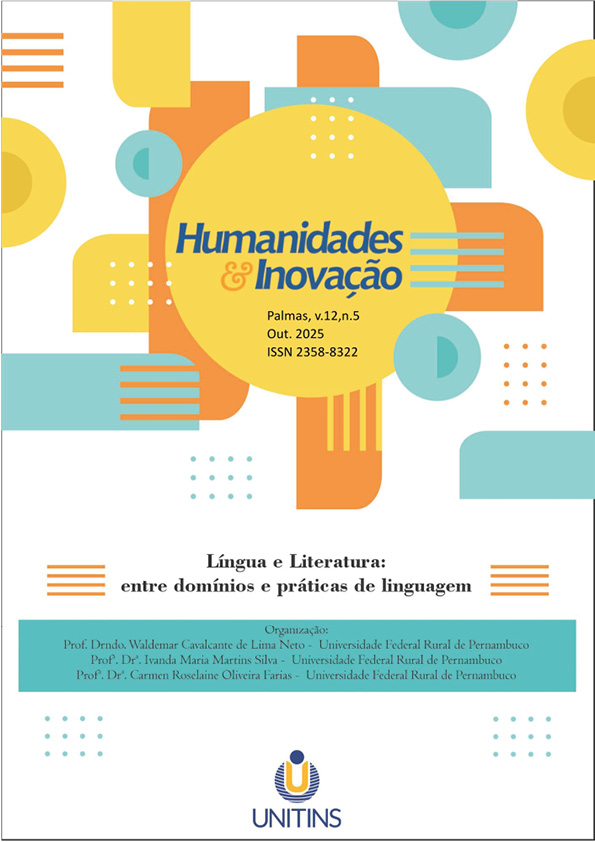EXPERIÊNCIA LITERÁRIA, GAMIFICAÇÃO E HUMANIZAÇÃO: UM DIÁLOGO CONTEMPORÂNEO
Abstract
Este relato aborda uma experiência pedagógica voltada à promoção da leitura literária em aulas de espanhol como língua estrangeira com alunos do 6º ano. Partindo do pressuposto da função humanizadora da literatura, conforme destacado por Antonio Candido, o objetivo foi aproximar os alunos da literatura latino-americana, desenvolver habilidades de leitura e interpretação, estimular o trabalho colaborativo e promover a empatia por meio de estratégias gamificadas. A proposta reforça a ideia de que a gamificação pode ser uma ferramenta poderosa para contextualizar a leitura literária, torná-la mais acessível e motivadora, e criar experiências significativas que conectem os alunos à literatura e ao desenvolvimento de habilidades do século XXI. Ao integrar elementos lúdicos, cooperação, competição saudável e reflexão, a prática contribuiu para o fortalecimento da relação dos alunos com a literatura e para a valorização de sua função humanizadora e formadora de empatia.
References
GEE, Paul James. Bons videogames e boa aprendizagem. Trad. Gilka Girardello. Perspectiva, v. 27, n. 1, 2009. Disponível em: https://periodicos.ufsc.br/index.php/perspectiva/article/view/2175-
795X.2009v27n1p167/14515. Acesso em: 13 jan. 2025.
PRENSKY, Marc. Digital natives, digital immigrants. On the horizon, 9(5), 1-6.2001. Retrieved April 30, 2003, Disponível em: http://www.marcprensky.com/writing/Prensky%20- 20Digital%20Natives,%20Digital%20Immigrants%20-%20Part1.pdf. Acesso em: 28 de agosto de 2024.
SKÁRMETA, Antonio. El cartero de Neruda (ardiente paciencia). Barcelona: Plaza Janés, 1995.
Copyright Notice
The submission of originals to this periodic implies in transference, by the authors, of the printed and digital copyrights/publishing rights. The copyrights for the published papers belong to the author, and the periodical owns the rights on its first publication. The authors will only be able to use the same results in other publications by a clear indication of this periodical as the one of its original publication. Due to our open access policy, it is allowed the free use of papers in the educational, scientific and non-commercial application, since the source is quoted (please, check the Creative Commons License on the footer area of this page).











